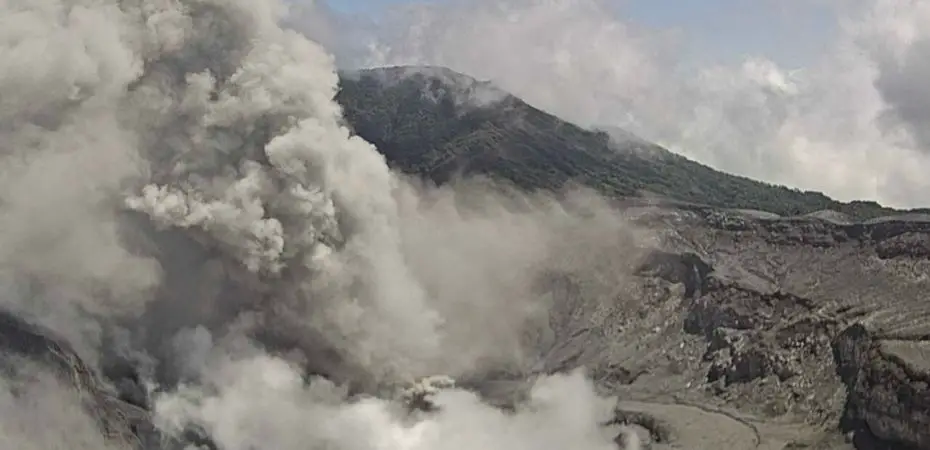It is not uncommon for a person that decides to make his or her home in Costa Rica to find a great property and embark on the process of building their dream home or start some kind of commercial development, be it a condominium or a set of commercial stores.
Any construction project will require careful planning and choosing the appropriate professionals to help and advise the client, because, as we have said before, there are some unscrupulous people that will lead the client down the wrong path with all the suffering and cost that this can entail.
Here is a short summary or checklist of some of the principal stages in the construction process of which one needs to be aware.
BUYING THE PROPERTY
In previous articles we have referenced this process. Suffice it to say that if a person intends to build some kind of project on their property, they should take care to consult with a proper professional (architect – engineer) as to the virtues and flaws of the properties being considered for the specific type of building intended.
It is essential for your lawyer to check the legal status of the property, any environmental or other type limitations that could affect the project and of course the availability of utilities, especially in rural areas. All of these aspects must be documented as these documents will need to be submitted to the proper authorities once the project kicks off.
Some extra precautions that can be considered are, for example, checking to make sure there are no imminent government projects in that area that can adversely affect your development, such as, new streets, new neighborhoods, highways or other initiatives.
PLAT MAPS AND TECHNICALS
Before starting the design process the developer must be aware that the property, which will be displayed in the plat map (cadastral map), with all its technical information, must adhere to a number of rules and regulations, such as municipal rules as to minimum lot sizes and other rules specific to each municipality, sidewalks, areas that must be respected in relation to rivers, creeks, wetlands, frontage, easements and many others. Some important technical elements to a construction process are:
Uso de Suelo (property zoning)
This is different from “ESTUDIO DE SUELO” (soil study). Uso de Suelo is a request the client makes to the municipality asking for authorization to develop his project, as pertains to the zoning of the area, especially in places where there is a Master Plan. It is always needed whether there is a master plan or not.
The municipality will analyze the situation and indicate if that type of development is authorized and what are the specific limitations. For example, an area can be limited to housing, or it can be approved for housing and commercial building. Master Plans make each area ever more specific to future building plans.
Estudio de Suelo (soil study)
This is a study to determine the technical aspects of the property where the construction will take place. The purpose is to determine if the property is apt for the type of construction that is planned and if any special provisions must be made. This study will basically have the physical, chemical and mechanical characteristics of the property, the composition of the soil, the location of water availability, the depth required for the foundation of the construction, whether retaining walls are required, what is the danger of landslides, etc.
Master Plan
This is a community agreement, which becomes a local law, as to how the area is to be developed in the future. Master Plans can be very specific. It basically establishes the future zoning rules for that municipality and many areas in Costa Rica do not have a mater plan.
Parcelamiento agrícola
There are some properties in rural areas that can be subdivided into larger pieces of land which helps alleviate subdivision costs, 5,000 square meters and in some cases 7,000 square meters. These properties have special limitations and rights.
There are a few government institutions that will be involved in the approval process, such as, I.N.V.U. (National Institute of Housing and Urban Development), the local municipality of course, M.O.P.T. (Ministry of Public Works and transportation) this will deal with the issues of roads, Ministerio de Salud (Heath Department) which will especially deal with sewers and residuals coming from the property. A developer may also have to deal with SETENA (Secretaría Técnica de Nacional Ambiental) which will have to approve any projects that may have environmental consequences.
The National Emergency Committee which will deal with areas prone to natural disasters. AyA (acueductos y alcantarillados) which is the national water regulatory agency. ICE (Instituto Costarricense de Electricidad) which will oversee electrical and high-tension electrical posts and wiring. There are other institutions that a project may have to deal with depending on a number of issues, for example, if a property is near an environmentally protected area.
It is important to determine, from the beginning, if the developer foresees that he will build a condominium or if that may be something in the future so he can adapt to the Law of Condominium Property (Ley Reguladora de la Propiedad en Comdominio).
Once you have established that your property is in order, you may start choosing the design and construction professionals that will help you with your project. The fees for these professionals are established by law and they may not charge less than these fees, which, according to the website of the College of Architects and Engineers are as follows:
These legal charges are based on the total declared value of the project:
- Preliminary studies 0.5 %
- Anteproyecto 0.5 to 1.00%
- Design (planos) and technical specifications 4.00%
- Budget 0.5 to 1% (global or detailed)
- Bidding process 0.5%
- Inspection 3.00%
- Project Direction 5.00%
- Administration 12.00%
A very important aspect of the construction process is the drafting and signing of the construction contract which must clearly establish all pertinent aspects of this endeavor so that each party may be clear and to their rights and responsibilities.
Very often, the client can be at a disadvantage in this respect because time for him or her is of the essence, either because they plan to move into the new house, they have to open a new business, they have a loan that has important costs or many other reasons. This is why a properly executed contract is essential to the effective development of the overall project.
There are many other aspects to the construction process that could be discussed which would be too lengthy for this article. As always, the most important thing is to seek the advice of reputable professionals that will help you make your project a serious and predictable process.
Let us know if you have any questions or comments at acmbalaw@gmail.com
About the author: Lic. Jorge Montero B. is an attorney and Notario Público with over 30 years of experience in Costa Rica. He holds various Post Graduate Degrees and can be reached at acmbalaw@gmail.com or (506)- 8384- 2246.
Source link
Jorge Montero



